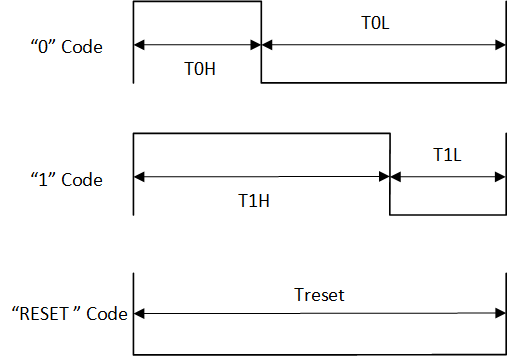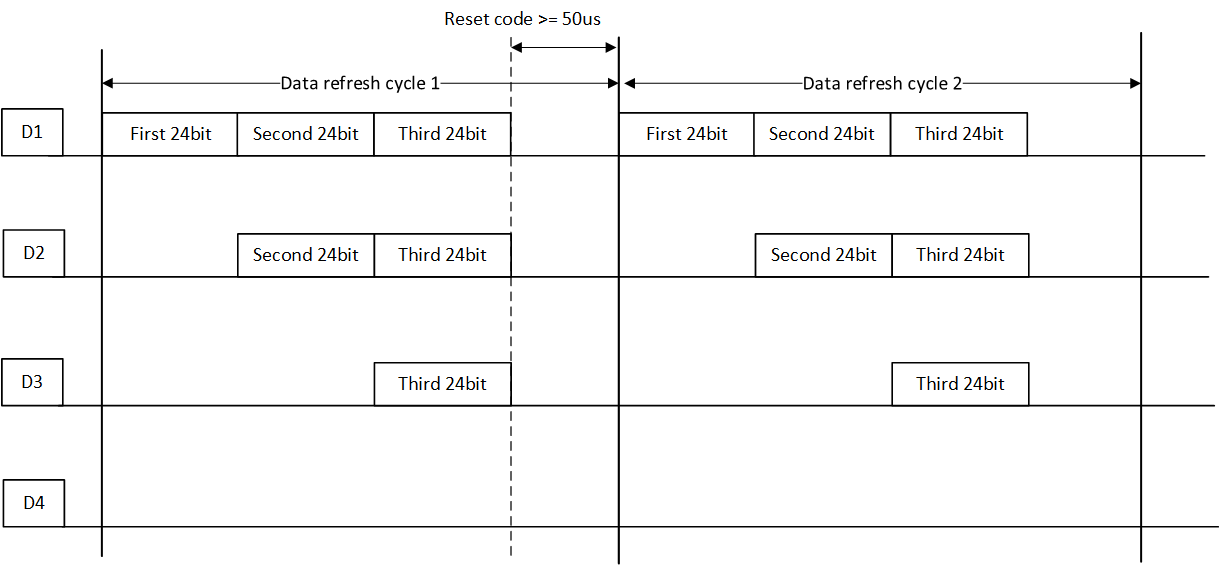ARGB
Sample List
This chapter introduces the details of the ARGB sample. The RTL87x2G provides the following content.
ARGB Introduction
Addressable RGB (ARGB): The term "addressable" refers to the ability to individually control the color and brightness of each LED through an integrated circuit (IC) embedded in or connected to each LED. This allows for point-to-point programming, enabling a more diverse combination of lighting effects. RGB is a format used to represent the color of a pixel, consisting of Red, Green, and Blue components.
In data communication, ARGB not only defines the color format for each pixel but also emphasizes the format for transmitting color data through interfaces such as RETURN-TO-ZERO, PWM, and SPI.
ARGB is typically used in LED light strip control systems. Some popular LED controllers (such as WS2812B) utilize custom protocols, employing a GRB sequence to reduce the complexity of hardware color configuration.
Each channel in ARGB typically uses 8 bits to describe the color, as demonstrated in a 24-bit data structure:

24bit Data Frame
ARGB Communication Method
ARGB uses RETURN-TO-ZERO (RZ) coding communication. This method involves adjusting the duration of high and low signal levels to represent logic "1" and "0."
The following are three types of input code types:

Input Code Types
The code timing is as outlined in the table below:
Name |
Description |
Typical Value |
Tolerance |
|---|---|---|---|
T0H |
Logic 0: High-Level Time |
0.40us |
±150 ns |
T0L |
Logic 0: Low-Level Time |
0.85us |
±150 ns |
T1H |
Logic 1: High-Level Time |
0.80us |
±150 ns |
T1L |
Logic 1: Low-Level Time |
0.45us |
±150 ns |
Treset |
RESET Code: Low-Level Time |
>50us |
Data Transmission Method

Data Transmission Method
The DIN accepts data from the controller. The initially received 24-bit data is extracted by the first pixel and sent to the internal data latch. The remaining data is forwarded via DOUT to the next pixel in the series. Each pixel transmission reduces the signal by 24-bit data until the last pixel receives the remaining 24-bit data, completing a data refresh cycle.
To update with new colors, send a RESET code and initiate a new data refresh cycle.